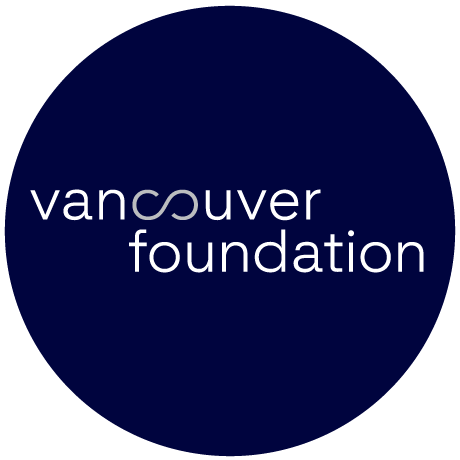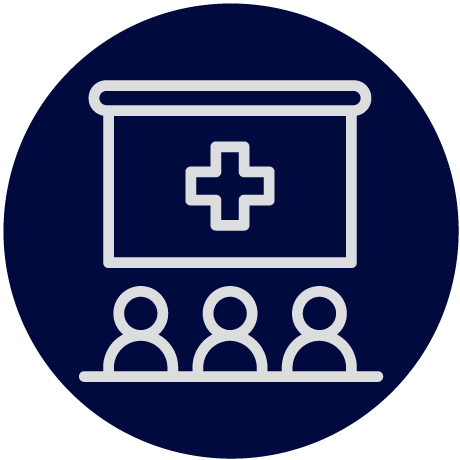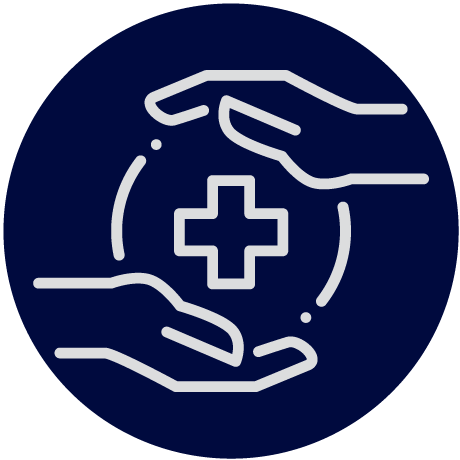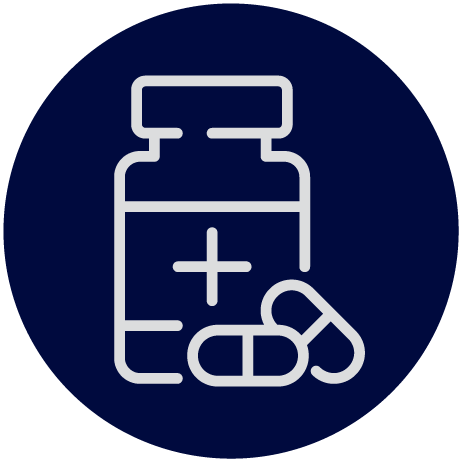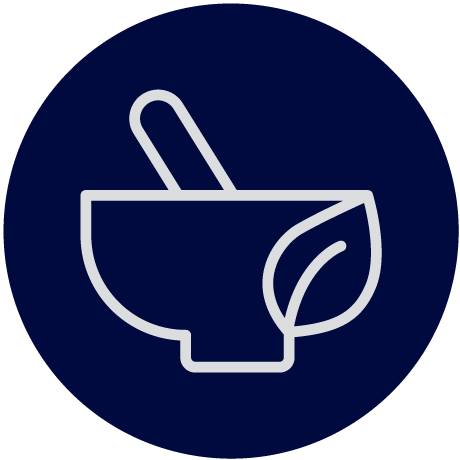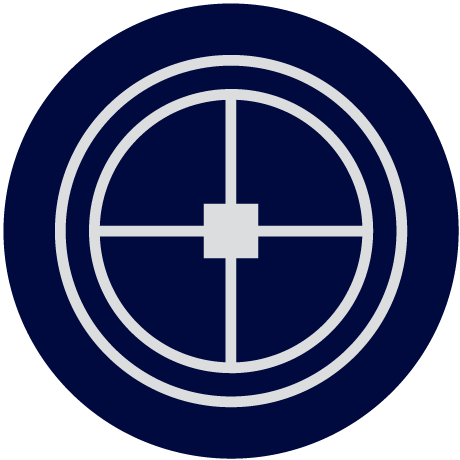To respect the data sovereignty of our partners, most of the project details are available to partners only. Please feel free to contact the UPROOT team should you have any questions. If you are meant to have access to any of these projects, please email the team at uproot.team@ubc.ca.
Community Health Programs Directory
The community health centre for this BC First Nation delivers a wide variety of holistic health services to the community. In order to improve patient care wayfinding and efficiently direct patients to the most appropriate service/provider, the First Nation partnered with the UPROOT team to create two deliverables: (1) a directory of services and relevant contact information, and (2) a poster with descriptions of services available to community members.
This project was completed in collaboration with the Nurse Manager at this First Nation. The project members interviewed staff to collect relevant details. Findings were collated into a directory of program descriptions and relevant contact info.
A print and online poster was created to provide information on the four categories of programs and services offered by this First Nation.
Community Partner(s)
Michelle Headley
Student(s)
Mary Shen, E2P PharmD Student
Granting Agency/Partner(s)
None
Healthy Eating Recipe Book
In order to promote healthy eating in the community, the health centre for a BC First Nation collaborated with UPROOT and Entry-to-Practice PharmD students to create a book containing healthy recipes. Recipes were curated with help from community members and selected to incorporate accessible and local ingredients, encourage variety in cooking and eating, and to be adaptable for various different diet requirements.
The project team members worked with the Nurse Manager at the health centre and interviewed community members to create a collection of recipes. Recipes were organized by season and availability of produce at the local store and the community farm.
Community Partner(s)
Michelle Headley
Patricia Bobb
Sheila Bikadi
Student(s)
Celia Ma, E2P PharmD Student
Farnaz Bondar, E2P PharmD Student
Granting Agency/Partner(s)
None
Wa7 Steqstum Ti Amha Swa7 (We Keep All The Goodness)
A BC First Nation is taking a proactive approach to supporting youth who commit crimes, by developing and implementing a restorative justice program. To gain a better understanding of what other First Nations restorative justice programs look like and to provide recommendations on best practices for youth crime support programs, the First Nation collaborated with UPROOT and Entry-to-Practice PharmD students.
Project team members worked with the Youth Crime Prevention Manager of the First Nation to create a literature review and recommendations for the development of the youth restorative justice program. A literature search was performed to review existing Indigenous youth-based restorative justice services and programs and recommendations. A final report containing recommendations based on the review and a presentation of the final project were created.
Community Partner(s)
BC First Nation
Student(s)
Pascal Coombs, E2P PharmD Student
Ravi Patel, E2P PharmD Student
Granting Agency/Partner(s)
None
First Nation Youth Restorative Justice Program Development
A BC First Nation was recently awarded a grant to implement a five-year plan to reduce violence among at-risk youth aged 18-30. A significant component of this plan is the development and implementation of youth crime prevention and restorative justice programming. This project developed a sample participation agreement and youth engagement plan to support the Youth Crime Prevention Manager for the First Nation in creating and implementing programming for local at-risk youth. It also analyzed community crime statistics to highlight commonalities in crime rates and to identify potential target areas for preventative measures.
Literature reviews on existing youth programming were performed to identify recommendations for two needs: 1) a participation agreement for youth attending programs and their parents and guardians, and 2) a strategy for engaging and retaining youth participants in the program. Based on findings from the review, a sample participation agreement and a sample youth engagement and retainment plan were created. Community crime statistics were analyzed for three separate years: 2019, 2020, and 2021. Data was filtered to determine the top five offences with the highest number of incidents for each year, as well as prolific, repeat offenders across all three years. The findings of the literature review, the samples, and crime data analysis were collated into a report.
Community Partner(s)
BC First Nation
Student(s)
None
Granting Agency/Partner(s)
None
Indigenous Advisory Committee Member Perspectives: Principles for Success
Indigenous people worldwide experience high levels of health disparities when compared to their non-Indigenous counterparts. In an effort to close the gap of existing health disparities, Canadian post-secondary health programs are increasing education regarding Indigenous health into their programs. Indigenous curricula is best suited to be taught by Indigenous educators, however there is a shortage of Indigenous educators available to take on these positions. The scarcity of Indigenous educators has led to an increase in Indigenous Advisory Committees (IACs) at institutions across Canada. Despite these efforts, there is no literature related on how to effectively establish an IAC that honours Indigenous perspective, worldview and pedagogies. This research seeks to unveil key components that contribute to successful IACs.
Community Partner(s)
BC First Nation
Student(s)
Brittany King, E2P PharmD Student
Granting Agency/Partner(s)
UBC Teaching and Learning Enhancement Fund
